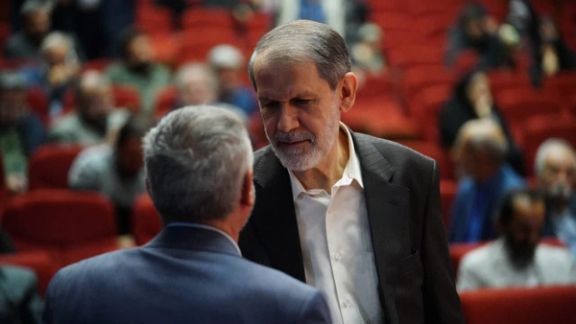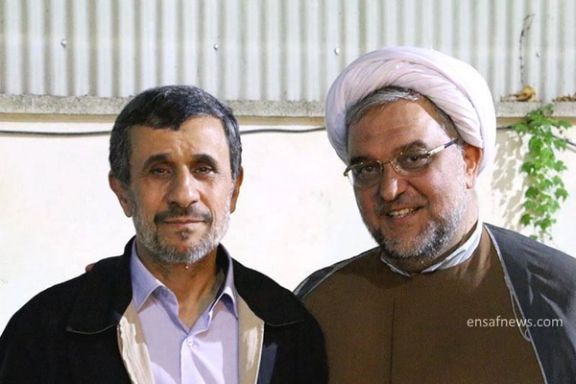Cleric Questions Tycoon As Paymaster Of Iran’s Ultraconservatives

A cleric, once recognized as former populist President Mahmoud Ahmadinejad's exorcist, has raised questions about the income sources of a wealthy financier of hardliners.

A cleric, once recognized as former populist President Mahmoud Ahmadinejad's exorcist, has raised questions about the income sources of a wealthy financier of hardliners.
In an interview with Khabar Online, Abbas Amirifar stated that Sadeq Mahsouli, the leader of the ultraconservative Paydari party that dominates the Iranian parliament, with several members serving as President Ebrahim Raisi's ministers, must disclose his income sources and the extent of his wealth to the public.
Earlier, conservative political commentator and a former editor of the Kayhan newspaper had also said that Mahsouli should be transparent about the source of his income and tell the nation how he became a super capitalist.
Mahsuli was an aide to Ahmadinejad in the 1990s when he was the governor of Ardabil province. Later, he became his interior minister when Ahmadinejad rose to power as Iran's President in the 2000s.
Mahsouli currently advocates for a political purification campaign launched by his peers, seeking to consolidate all political power within the ranks of the Paydari Party. The campaign has gone much further than just the government, with hundreds of university professors, teachers and artists fired or banned from working.
Hesameddin Ashna, an adviser to former President Hassan Rouhani, has wryly remarked that the present government in Iran is a result of "Mahsoulicracy."

In an interview with Khabar Online, the cleric Amirifar said that the party would not have survived without financial support from Mahsouli's holdings. He added that Paydari was a legitimate political organization when its founding father Ayatollah Mesbah Yazdi was alive, but after his death the party lost its legitimacy. He opined that if Mesbah Yazdi was alive, he would have opposed Mahsouli's position in the party.
Amirifar argued that Mahsouli is not a popular political figure and if he ever becomes a candidate for any post, he is unlikely to win the people's vote. However, he insisted that individuals close to Mahsouli run rich entities including the Social Security Organization and the Ministry of Welfare.
While many believe that Mahsouli is a front for Morteza Aqa Tehrani who cannot be the party's leader because of his reputation as a cleric who has a US permanent residency or possibly citizenship, Amirifar said that Mahsouli hides behind Aqa Tehrani to conceal his vast financial resources.
Moreover, Mahsouli's inclusion in the Ahmadinejad Administration tarnished the former President's reputation, as Mahsouli's wealth and financial dealings contradicted Ahmadinejad's professed commitment to social justice. Amirifar noted that Ahmadinejad realized too late that Mahsouli's role in the government was counterproductive.
Mahsouli, a former IRGC general during the Iran-Iraq war of the 1980s, was Ahmadinejad's classmate at the university and his access to vast financial resources first became controversial when the parliament found it hard to endorse his qualifications as Interior Minister, although he finally won the vote of confidence with a narrow margin. He was named as one of the top 10 wealthiest people in Iran 15 years ago.
In his early career in the government, he was close to current aide of Supreme Leader Ali Khamenei, Parviz Fattah, and current Energy Minister Ali Akbar Mehrabian and several other ultraconservative politicians around Ahmadinejad.
When he wanted to become Ahmadinejad's Oil Minister in the 2000s, he was forced to withdraw his candidacy for the post as an investigation into his sources of income went badly controversial. He finally managed to become Ahmadinejad’s interior minister by just one vote in the parliament.